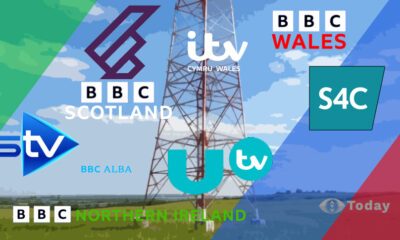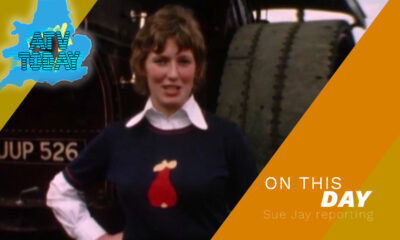 ATV boss Lord Lew Grade knew to make money you needed to invest in great television. He gave ITV some of its biggest ratings and most popular programmes. It was programmes to make profit. New ITV bosses hope to make profit, but not necessarily it seems though investing in great programmes…
ATV boss Lord Lew Grade knew to make money you needed to invest in great television. He gave ITV some of its biggest ratings and most popular programmes. It was programmes to make profit. New ITV bosses hope to make profit, but not necessarily it seems though investing in great programmes…
Television company first business second. That was the way of the showmen. Today its run by shop men and bankers, who they will be the first to admit haven’t really a clue about what makes good television content. So what is the future for channels like ITV?
You could invest in bringing in talent from the theatres, just like the ‘good old days’ as these people ‘know how to please an audience’ but that seems unlikely. ITV is keen instead to use focus groups.
These focus groups told us last year that the ITN produced news looked ‘too London centric’ and so one of the best news title sequences to News at Ten was dropped and a sophisticated London skyline was ditched from the set. Replaced with something that looks rather plastic and tacky.
These same focus groups told ITV that the new Daybreak set was great, oddly with a view of London. Thus proving, these groups are not that great at television creativity. The other problem is the ‘same old, same old’ formats in television from the same companies and people. This is nothing new, even ATV Network was accused in the 1970s of using the same people because of ‘connections’ rather than talent in making the shows. This has never changed, and never will. The controllers’ friends, former work associates and relations always get priority commissions, whether their shows are a load of old chuff or not. This isn’t of course exclusive to ITV – most channels are the same. There is new talent out there, but it seems the BBC is the only ones looking for it, and even so via very limited access points.
So if you leave it to the bankers and businessmen what do you get? Well wall to wall soaps five episodes a week for a start, these once high quality twice-weekly serials are stretched to the quality limit in order to prop up the schedule. ITV makes 67% of its own shows they boast. However if you remove Coronation Street and Emmerdale from the figure they make only 16%.
 The latest idea is to milk dry what few successes ITV has these days in order to make more money from the few golden eggs in the ITV1 nest. Yesterday, speaking at the Royal Television Society international conference in London, ITV boss Adam Crozier said the broadcaster is starting to look charging for some online content at ITV.com.
The latest idea is to milk dry what few successes ITV has these days in order to make more money from the few golden eggs in the ITV1 nest. Yesterday, speaking at the Royal Television Society international conference in London, ITV boss Adam Crozier said the broadcaster is starting to look charging for some online content at ITV.com.
One suggestion was to give viewers the chance to see, for example, alternative storyline outcomes in their favourite soaps, for a small fee, another suggestion is to charge viewers to view ITV2 as well as the ‘HD’ versions of these channels.
ITV have also decided they do want to continue with regional news. Any company knows a product’s brand is key to its success, and ITV has casually thrown away many regional brands with a loyal following in recent times in order to have a national identity as ITV1. However witother companies beating at Ofcoms’ door – suggesting local television is far from dead, its just been suffering from attempted murder at the hands of ITV – it does appear than rather than these companies prove local TV is still viable (as UTV actually do in Northern Ireland on ITV) they’re wanting to keep control of the situation and have u-turned their plans to ditch local programming.








 The latest idea is to milk dry what few successes ITV has these days in order to make more money from the few golden eggs in the ITV1 nest. Yesterday, speaking at the Royal Television Society international conference in London, ITV boss Adam Crozier said the broadcaster is starting to look charging for some online content at ITV.com.
The latest idea is to milk dry what few successes ITV has these days in order to make more money from the few golden eggs in the ITV1 nest. Yesterday, speaking at the Royal Television Society international conference in London, ITV boss Adam Crozier said the broadcaster is starting to look charging for some online content at ITV.com.


